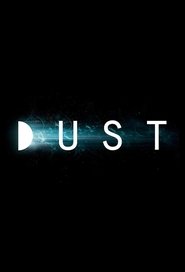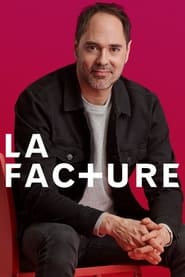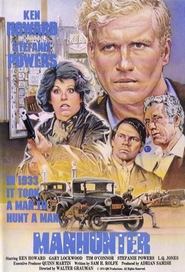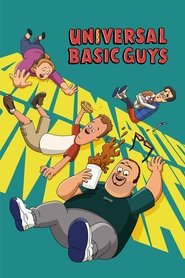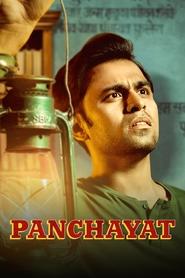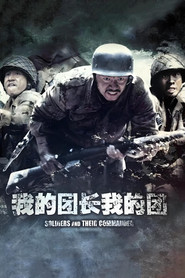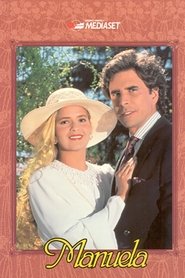Popular War TV Series - Page 375
-
DUST
2016
-
Super Cub
2021
Super Cub
2021
star 7.2Koguma is a high school girl in Yamanashi. She has no parents, friends, or hobbies, and her daily life is empty. One day, Koguma gets a used Honda Super Cub motorcycle. This is her first time going to school on a motorcycle. Running out of gas and hitting detours become a small source of adventure in Koguma's life. She is satisfied with this strange transformation, but her classmate Reiko ends up talking to her about how she also goes to school by motorcycle. One Super Cub begins to open up a lonely girl's world, introducing her to a new everyday life and friendship. -
La facture
1995
-
I'll Live a Long Life to Dote on My Favorite Stepbrother!
2026
star 5.5Alba has been reincarnated as the son of an impoverished noble family. When his mother remarried into a dukedom, he was introduced to his stepbrother, Orsis, his "favorite person" from his previous life. “Does this mean my favorite is now my stepbrother?” he thought joyfully, But he suddenly remembers that he was the reason his beloved stepbrother lost his smile… To avoid his impending fate, and continue loving his favorite, Alba will do everything in his power to twist fate! This popular series, which has sold over 170,000 copies, brings you a warm and touching story story of a boy's reincarnated life in another world! -
The Manhunter
1974
The Manhunter
1974
star 5The Manhunter is an American crime drama that was part of CBS' lineup for the 1974–1975 television season. The series was produced by Quinn Martin and starred Ken Howard as Dave Barret, a 1930s-era private investigator from Idaho. The series was executive produced by Quinn Martin. -
Universal Basic Guys
2024
Universal Basic Guys
2024
star 5.4Two brothers lose their jobs to automation and are given $3,000 a month in a new basic income program, allowing them to use their free time and free money to find purpose in a world where they're no longer needed. -
Chillin' in My 30s After Getting Fired From the Demon King's Army
2023
star 7.5Dariel, a dark soldier in the demon king's army who cannot use magic, has risen to the position of assistant to the Four Generals with his talent and energy, and has been wielding his skill. However, as soon as the Four Generals are replaced, Dariel is fired from the army. Dariel is devastated, but when he arrives in a human village, he finds that his adventuring skills, which are supposed to be useless to demons, have blossomed! "I was... human?" Dariel decides to spend his second life in this village, and the requests start pouring in! Trouble! False charge! Duel! With his natural skills and the adjusting power that he developed in his old place, the former dark soldier solves them all! -
Rewrite
2016
Rewrite
2016
star 5.2Green City Kazamatsuri is a city built on the ideal of a harmonious relationship between civilization and environment.. However, the peaceful Kazamatsuri will soon be faced with its annual commotion, the Harvest Festa at the turn of the year. It's an event that is much like a massive school festival, and Tennoji Kotaro decides to head out to research topics for his articles. It's an easy decision for him, because the town is filled with rumors about unidentified creature sightings and various other occult occurrences. At the same time, strange things start happening to Kotaro himself. -
Panchayat
2020
Panchayat
2020
star 8.2Panchayat is a comedy-drama, which captures the journey of an engineering graduate Abhishek, who for lack of a better job option joins as secretary of a panchayat office in a remote village of Uttar Pradesh. Stuck between crazy villagers and a difficult village lifestyle Abhishek starts his job with the sole motivation of getting out of there as soon as possible, for which he even prepares for CAT. -
My Chief and My Regiment
2009
star 9The series is about the Chinese National Revolutionary Army Expeditionary Force in Burma fighting the Imperial Japanese Army during the 1942 Battle of Yunnan-Burma Road at the Second Sino-Japanese War. The Chinese troops landed in Burma to support the British allied forces operations. The aim was to protect the road since it served as an important supply route after China's ports fell under Japanese control. When the British forces withdrew their support and surrendered, part of the remaining Chinese troops was forced to abandon their heavy equipment and retreat in loose formations through the harsh Burmese jungles, experiencing constant enemy pursue and ambush. Of the 100,000 strong Chinese Expeditionary Force sent to fight, only around 40,000 returned home. The story follows a small group of soldiers being refuged in Yunnan, and is narrated through the eyes of a limping young Beiping student-turned-soldier named Meng Fanliao. -
Dona de Mim
2025
-
Stöckl
2013
Stöckl
2013
-
Brave New World
2020
Brave New World
2020
star 6.7In a utopia whose perfection hinges upon control of monogamy and privacy, members of the collective begin to question the rules, putting their regimented society on a collision course with forbidden love and revolution. -
Manuela
1991
-
Flower Fairy
2014
-
Secret of the Heart
1998
Secret of the Heart
1998
star 9Secret of the Heart is a 1998 TVB production that was first aired from February 16,1998 to May 10, 1998. The drama had a powerful roster that is made up of Gallen Lo, Felix Wong, Amy Kwok, Kathy Chow, Sunny Chan, Ada Choi, Jessica Hsuan and Nick Cheung. It won three TVB Anniversary Awards, including Best Actor for Gallen Lo, Best Actress for Ada Choi and Best On-Screen Improvement Award for Nick Cheung. The drama also received a late night hour rerun during 2003 and 2010. It was digitally remastered for the 2010 rerun. -
Sangamarmar
2026
Sangamarmar
2026
Amrita sacrifices her budding romance with Aditya to fulfill family responsibilities. Their tender love endures through years of separation, becoming a poignant tale of sacrifice, silent strength, and unchanging devotion. -
Chrisley Knows Best
2014
Chrisley Knows Best
2014
star 7Follows Atlanta-based self-made multimillionaire Todd Chrisley, his devoted wife Julie and their five children who live a seemingly picture-perfect Southern life with everything money can buy. -
Welkame
2009
Welkame
2009
-
Tasokare Hotel
2025
Tasokare Hotel
2025
star 7.9Who is the real you? The "Tasokare Hotel" exists in a state of twilight limbo, allowing souls caught between the afterlife and the world of the living to rest. Neko Tsukahara arrives with no memory of who she is or how she came to be there, and is shown to a room filled with items relating to her past. As she searches for a way to remember who she was, a certain incident confronts her.
 Netflix
Netflix
 Amazon Prime Video
Amazon Prime Video
 Apple iTunes
Apple iTunes
 Apple TV Plus
Apple TV Plus
 Disney Plus
Disney Plus
 Google Play Movies
Google Play Movies
 Paramount Plus
Paramount Plus
 Hulu
Hulu
 HBO Max
HBO Max
 YouTube
YouTube
 fuboTV
fuboTV
 Peacock
Peacock
 Peacock Premium
Peacock Premium
 Amazon Video
Amazon Video
 The Roku Channel
The Roku Channel
 AMC+
AMC+
 Kocowa
Kocowa
 Hoopla
Hoopla
 The CW
The CW
 Vudu
Vudu
 Starz
Starz
 Showtime
Showtime
 PBS
PBS
 Pantaflix
Pantaflix
 FXNow
FXNow
 Tubi TV
Tubi TV
 Kanopy
Kanopy
 Comedy Central
Comedy Central
 Crunchyroll
Crunchyroll
 Microsoft Store
Microsoft Store
 Redbox
Redbox
 Sun Nxt
Sun Nxt
 ABC
ABC
 DIRECTV
DIRECTV
 Crackle
Crackle
 Fandor
Fandor
 Plex
Plex
